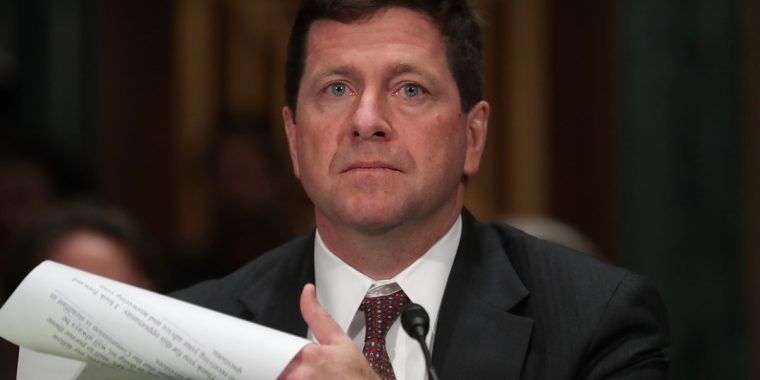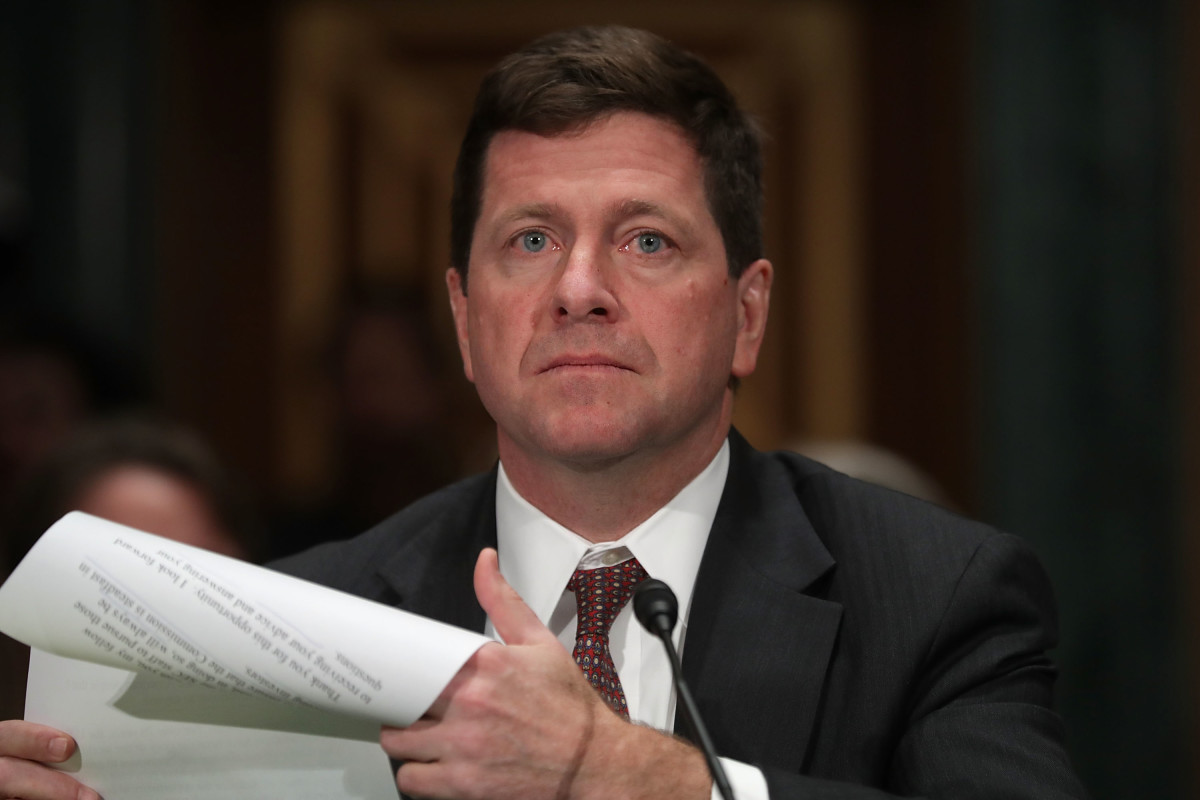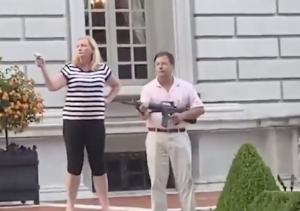
It was an interesting weekend for Law Professor Twitter. I’ll spare you the details. Although you can find selected portions of the discussion on Professor Josh Blackman’s blog post about it.
The bottom line: A junior law professor (“Commentator”) made a comment. The comment was about another junior law professor (“Our Hero”) bringing suit to open bars back up in Arizona during a health crisis. Commentator questioned whether that was a smart move. The Commentator didn’t mention the case, the name of Our Hero bringing the case, or anything of the sort. You know, a subtweet. Still, questions were raised about what kind of bully Commentator was being for calling out the constitutional law hero of the drinking world.
There was an outpouring of conservative support, the likes I haven’t seen since I and others tweeted that it was a terrible idea for a law student to clean his gun on screen during a zoom class. And, as I’ve mentioned, within hours there was even a blog post about the tweet! That blog post DOES mention both professors by name. I mention that because the original outrage was about a subtweet.
This post isn’t about the Arizona case or either of those two professors: It is the notion of academic bravery.
First, I want to thank Blackman for writing the post. It caused me to think and, therefore, is a good thing. In particular, this comment struck me: “[Our Hero] has courage to take a stand for a cause he believes in. Courage is lacking in our society. It is not courageous to take a position that is popular. Courage is taking a position that you know will be unpopular, and doing it anyway. I wish there were more scholars like [Our Hero] who have the fortitude to talk more, and smile less.”
Taking an extreme minority position in the wake of (or perhaps in anticipation of) criticism is brave. Taking a popular position is not.
Having read Blackman’s blog post, I’ve decided I have not been brave enough. In fact, I have called out for being anonymous (AGAIN). Happens every time I move away from puns into something substantive. They might say, “Please, LPB, identify yourself so we can sling ad hominems more readily! Be courageous and stand by yourself! Or maybe create a society called the … never mind.”
So, I’m going to be more brave. But let me be clear on the ground rules. Because academics are mostly “liberal” (they tend to vote Democrat and therefore … ), it is not academically brave to take a position in favor of, say, racial justice. That is a popular law professor windmill at which to tilt! Certainly no death threats there! It is also not academically brave to be in favor of background checks for gun ownership. It is not academically brave for a professor to support the Voting Rights Act. It is not academically brave to support gay rights in the South. It is not academically brave for a female law professor to call out for gender equity in the face of rape threats. Nope, none of that is brave. You’d know if it were brave because you would find strong disagreement in the academy. However, it’s not that conservatives won’t support you even if you aren’t brave in these ways. That sound of crickets chirping is actually their full-throated support!
And, just so we are clear, it is definitely not brave to assert that academics are way too elitist in their hiring practices, you anonymous coward! Ah, I hear the crickets.
So, I think I’ve found a hypothetical in which I come off sounding brave.
I’ll be defending Godzilla.
Godzilla entered the United States, and immediately started wreaking havoc in San Francisco. The military sought to bomb Godzilla and kill him.
I thought to myself: What a perfect time to bring an action via the Endangered Species Act!
Who could be more oppressed that Godzilla? He suffers from being unique, way beyond the “discreet and insular” minority contemplated in Carolene Products. And he doesn’t have a voice (okay, literally, he roars and that’s it). And like Anakin Skywalker, he brings balance to the Force (if you have seen the most recent movies).
I didn’t stop there, and my legal practice as an academic clearly does not demonstrate my core values. Sometimes you just got to take the hard cases for higher principles. Don’t judge me! There are bigger issues at stake!
For example, local officials wanted to close bars and restaurants in areas where Godzilla frequented. Searching hard, I was able to make a clever argument that such closures violated the state constitution. Sure, I didn’t get paid because my client and his fellow partygoers were crushed under Godzilla’s foot, but sometimes there are more important things going on with the law.
Bar Examiners wanted to continue to have a live bar exam. And I agreed. However, I was successful in convincing them to require that all exam takers wear seven-foot metal spears so if Godzilla tried to stomp on them during the exam, he would get an “owie” on his foot. The spears would be searched before the exam to prevent cheating, of course. This was a compromise because I was unfairly criticized for caring more about Godzilla than my own students.
It’s weak tea to complain about my moral core. If I had a dime for every time someone cried about their baby getting stomped by Godzilla! They just don’t understand that I’m the underdog fighting against a big bad oppressor who is trampling (pun intended) upon (my interpretation of) the Constitution. Many of my friends have been crushed by Godzilla! My mother, too! That’s just how much I love (selected parts) of the Constitution. I’m willing to have others sacrifice for me. I’m very brave, and my scholarly impact score soars! And, I’m brave because I don’t see anyone else in the cowardly academy defending Godzilla.
My next client is King Ghidorah. Every single damned head. Just a coincidence I’ve defended two monsters. I would totally defend those trampled under foot by Godzilla. If I had the time for it. But not that person seeking to get health care under the ACA after being trampled. There are bigger issues at stake!
You liberal law professors: Don’t you dare bully me by tweeting that defending Godzilla might not be a good idea as he tears up our armed forces.
Okay, enough. Think you might get a sense of what I stand for over time by the cases I take?
Yes, the law DOES require lawyers and law professors to take controversial and adversarial positions. And no one is saying Our Hero shouldn’t be able to defend bar owners or that he should be punished for it. And you KNOW I believe this because I’ve personally been horrified by Professor Amy Wax’s comments. But if you look carefully you’ll see I didn’t advocate killing her tenure. Something about consistency, I suppose.
Yes, law professors defend people on death row, serial killers, and the ability of Nazis to march in Skokie. However, what we are defending should transcend political football teams. It says something about the principles of a law professor who defends the right to peacefully assemble, both when the neo-Nazis seek to march and when antifa seeks to do the same. It says something about the lawyer’s principles, too, if their practice is based only on defending neo-Nazis. We might call the former principle consistency, and it often is missing when law professors choose political football teams.
Silence says something, too. For example, one might be silent when a law professor is being bullied for advocating gender equality, yet outraged when someone questions whether it is a good idea to open bars given all the evidence of bar patrons and COVID-19 being perfect companions. And it might say something if we are silent when students are forced to take a bar exam during a pandemic all the while applauding someone who seeks to open bars for alcohol. It might say something when we vigorously defend the gun-cleaning student and stay silent as students seek desperately not to have to risk their health to take the bar exam.
And, standing up to government isn’t always brave. For example, antitrust law professors charging thousands of dollars an hour to work for billion-dollar corporations seeking to merge are not bravely battling government. Standing up against a government seeking to integrate the schools in the 1960s doesn’t strike me as brave, either.
I think academics should read “The War Prayer” by Mark Twain. That piece starts with a church in which the parishioners pray for victory in war. A figure comes in, and informs the folks that their prayer has two parts, the part that was uttered and the part unuttered. The unuttered part is horrific. In seeking victory, the parishioners have sought the massacre of others and the utter destruction of their enemies.
Legal academia is like that. To argue a position has consequences far beyond scholarly impact. So one might one day be able to utter aloud: “I just killed the ACA!” But the silent part is: “Someone likely just died because I killed the ACA!”
I’m not asserting whether the ACA is constitutional. I’m suggesting another component of the calculus that ought to enter the picture when we write. It should be weighed carefully. Not glibly. Law professors should be humble in what they are seeking to do with the law. And, as we gaze into the mirror, we ought to consider whether we pick and choose which great expansions of governmental power we fight against and which we accept in silent endorsement.
#BeBrave, my colleagues in academia. And remember, when someone criticizes you, there’ll be professors there to protect you against that criticism. Depending on what your viewpoint is.
LawProfBlawg is an anonymous professor at a top 100 law school. You can see more of his musings here. He is way funnier on social media, he claims. Please follow him on Twitter (@lawprofblawg) or Facebook. Email him at lawprofblawg@gmail.com.





 Jordan Rothman is a partner of
Jordan Rothman is a partner of 





 Olga V. Mack is the CEO of
Olga V. Mack is the CEO of 



